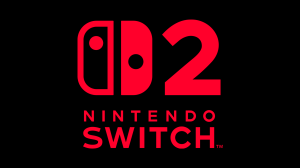Terminator: Dark Fate director Tim Miller says he’s “still processing” the box office failure of the attempted franchise relaunch that reunited stars Arnold Schwarzenegger and Linda Hamilton under producer James Cameron, director of 1984’s The Terminator and 1991’s T2: Judgment Day, but a lack of control over the finished product means Miller is unlikely to ever re-team with Cameron. Despite lingering “trauma” from Dark Fate, which has grossed $234 million worldwide since its Nov. 1 domestic opening, Miller says he’s on good terms with Cameron personally — but their professional relationship won’t extend beyond what was intended to be the start of a new trilogy.
Videos by ComicBook.com
“Even though Jim is a producer and [Skydance’s] David Ellison is a producer and they technically have final cut and ultimate power, my name is still on it as director,” Miller told KCRW’s The Business. “Even if I’m going to lose the fight … I still feel this obligation to fight because that is what the director is supposed to do. Fight for the movie.”
Miller was admittedly unsure how Cameron was going to react to his director’s cut, but after a screening, “The lights come up, and there was a lot of stuff that I had cut that Jim thought was important and scenes we’d shot that we’d had disagreements on,” Miller said. “But the lights come up and Jim says ‘we’ve got a movie.’”
According to the director, most of their disagreements revolved around small lines Miller said were “poetic and beautiful.” Cameron vetoed them.
“I would fight for that line, because it was important to me. But does the audience really care? Probably not,” Miller said. “As far as donnybrooks go, it’s not that big of a deal.”
Miller and Cameron had larger disagreements about Legion — an updated Skynet — and its role in the future: Cameron preferred a future where humanity was victorious, and Miller preferred the opposite.
“[I suggested] Legion is so powerful, the only way to beat it is going back in time and strangle it in the crib,” the director said. “Jim says, ‘What’s dramatic about the humans losing?’ And I say, ‘Well, what’s dramatic about the humans winning and they just need to keep on winning?’ I like a last stand. It’s not his thing.”
Asked if he would ever again work with Cameron, Miller said he wouldn’t, wanting to maintain control over his directorial projects.
“I can say no, but it has nothing to do with whatever trauma I have from the experience. It’s more that I just don’t want to be in a situation again where I don’t have the control to do what I think is right,” he said. “I just got an email last week from Jim, who said, ‘I know we clashed a little bit. I put it all down to two strong, creative people with differences of opinion and I think it made the movie better. I’ll be back in L.A. in December. Let’s go get a beer.’”
Miller admitted he feels “horrible” over Dark Fate‘s poor box office performance, saying, “I’m sure we could write a book on why it didn’t work. I’m still not sure and I’m processing, but I’m very proud of the movie.” Miller also said he could not control baggage from past attempted franchise re-starts, including 2015’s failed reboot Terminator Genisys.
“The things [reactions] seemed to hate the most about the movie, were things I can’t control,” he said. “I can’t control you didn’t like Genysis or you felt betrayed by Terminator 4. I can’t help that.”
In October, just before Dark Fate reached theaters, Cameron admitted to clashing with Miller when he said “the blood is still being scrubbed off the walls from those creative battles.”
“[Dark Fate] is a film that was forged in fire. So yeah, but that’s the creative process, right? I mean, my work with Robert [Rodriguez] on Alita was very different,” Cameron said in a past interview. “Robert loved the script, loved everything, said, ‘I just want to make this movie. I want to make the movie the way you see it.’ I was like, ‘No, you got to make it your movie.’ I had the reverse experience with Tim, which is Tim wanted to make it his movie. And I’m like, ‘Yeah, but I kind of know a little about this world.’ So I had the matter and the anti-matter version of that producorial experience.”








